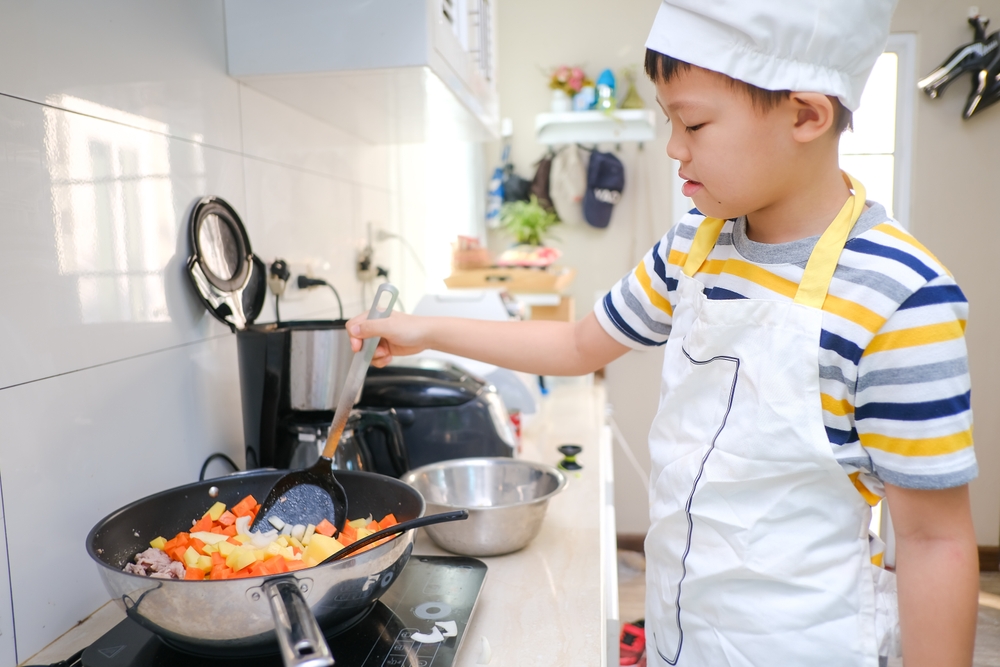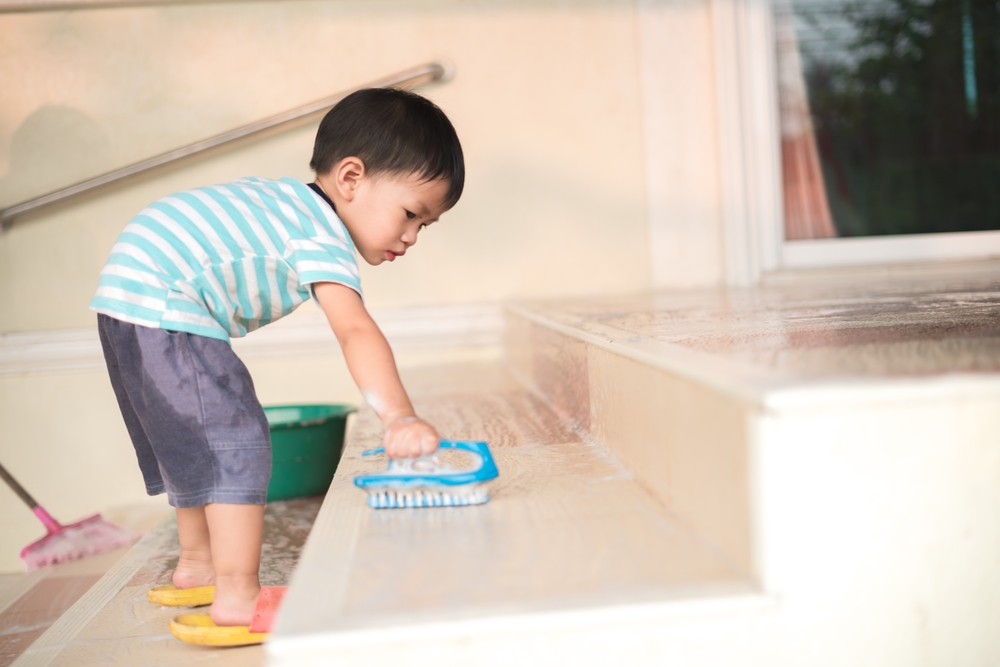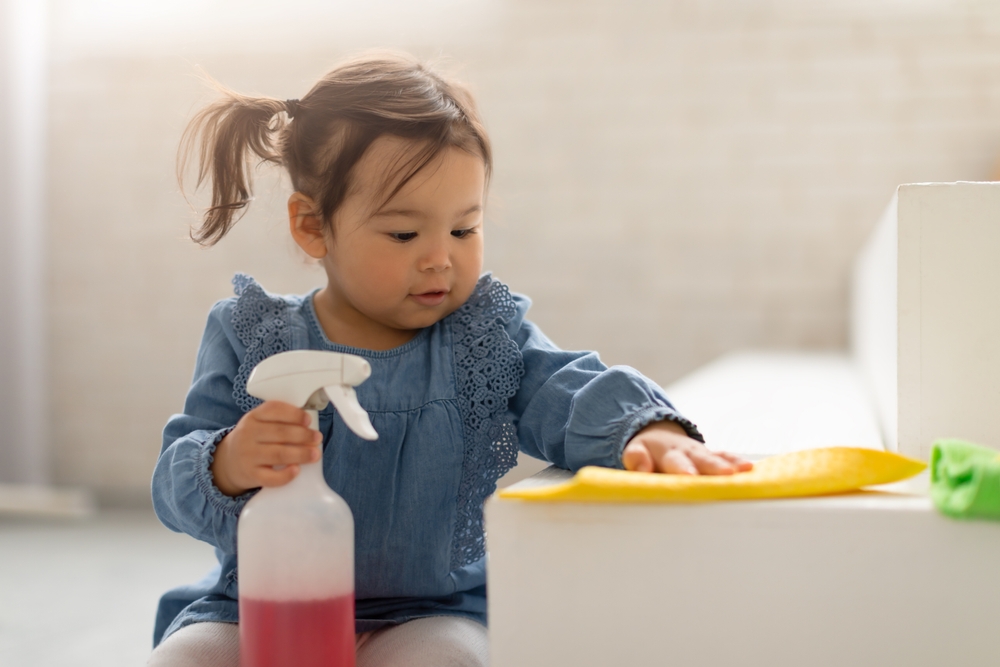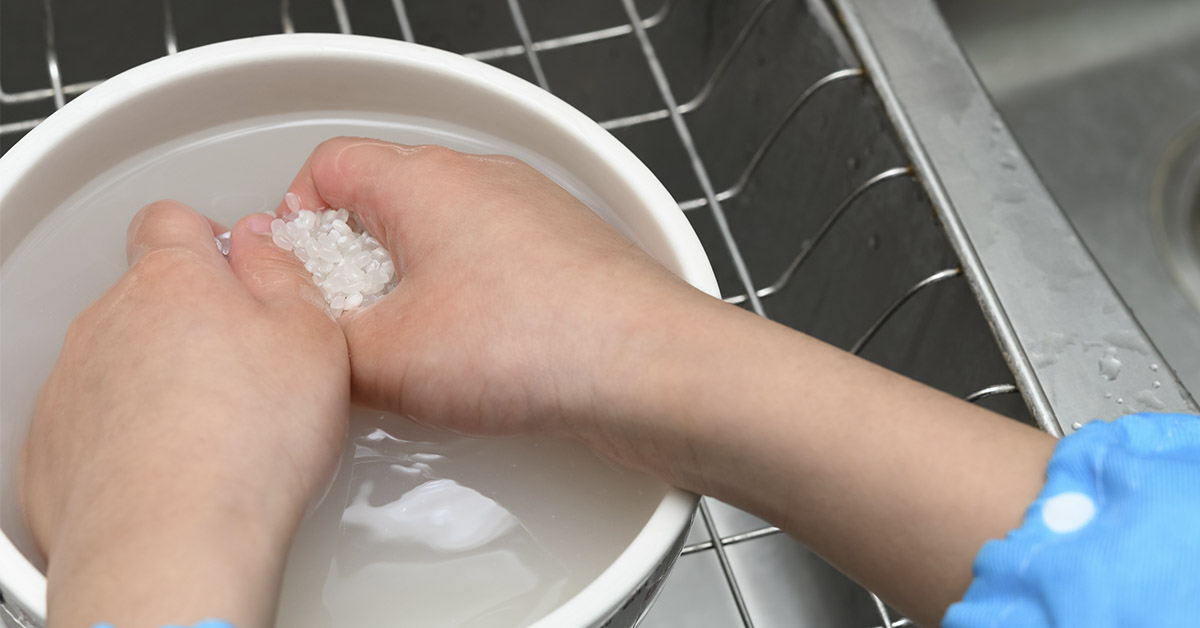On particularly stressful days, many parents might envy their kids relaxing on the couch while they shop and cook dinner. Some parents in China are living this fantasy, as seen through viral social media posts that are rising in popularity on local social media sites like Weibo and Douyin. The trend is called “reverse parenting” and it involves kids cooking, grocery shopping, planning vacations, and more, so their parents don’t have to. However, the experts are divided on the trend, while some are all for it while others recommend caution.
Kids Acting Like Parents and Vice Versa

Yuanyuan is one of the prime examples of “reverse parenting”. He’s a primary school student from northeastern China’s Liaoning province, and he documents his life with a camera clipped to his clothes. On social media, he has garnered about a million followers who are fascinated with his routine. Twice or thrice a week, Yuanyuan wakes at 5 AM to work as a dog walker, earning five yuan (70 US cents) per dog.
After school, he goes grocery shopping and cooks dinner, like pork ribs and braised prawns. He says he learned these skills from recipe videos online. When he calls his mom for dinner, she is often watching TV, a true role reversal for most households. His mother says she is confident in his ability to juggle school and housework by himself. But his responsibilities include caring for her by choosing her outfits, helping with her makeup, complimenting her, and cheering her up when she’s upset.
Another viral account involved a four-year-old boy who scolded his parents for being lazy. In the clip, the parents were resting in bed all afternoon. “I had to clean everything and even sweep the floor,” the boys says, according to SCMP. “You two are not doing anything. I cannot take it any more.” The mother says they rely on him because he is so capable, but the son responds, “Might as well work me to death.” One commenter said the kid is acting like the parent, and the parents are acting like children.
One mother, known as Nini, says her seven-year-old daughter books their vacations after the mom accidentally caused the family to be stuck overnight at the airport. “Since then, my daughter does not trust adults with travel plans.” Her daughter uses social media to research destinations, plan itineraries, and book flights.
Read More: Kids Who Do Chores Are More Successful Adults
The Perks of “Reverse Parenting”

The topic of a “reverse-parenting” style has garnered much attention in China. It’s said to help kids build discipline, empathy, and independence. The idea isn’t to burden children with responsibilities but to prepare them for adult life. “Children who manage chores develop a sharper sense of time, accountability, and organisation,” said Dr. Li Feng, a child development psychologist, to News18. “They begin to see the world not just from their own lens, but also through the eyes of those who care for them.”
Many posts on Douyin and Weibo displaying this trend aren’t as extreme as the examples above. They depict the children participating in tasks, and proudly showing off their clean rooms or homemade meals as their parents praise them. “When children experience the fruit of their labour, their confidence blooms. They feel they matter in the family’s functioning,” said Dr. Feng. This can create stronger bonds between parents and kids. Kids may begin to understand how much their parents care for them. One viral video showed 10-year-old Xu Ming expressing this idea perfectly: “Now I know how hard it is for mom to cook three meals every day. I want to help her more.”
However, many experts recommend caution around the “reverse-parenting” trend. For example, Ashita Sharma, a parenting expert from India, says romanticising a lack of boundaries can be counterproductive. “Children are not miniature adults,” she said. “If we overload them with responsibilities or treat them like house help, we risk pushing them toward burnout or resentment.” Although children develop through completing tasks, it’s not the only way they can mature. “Children learn not only from chores but from free play, reading, and exploration. That’s what fuels creativity and emotional growth,” she said.
Is Reverse-Parenting Healthy?

The term “reverse-parenting” is being used to describe an entertaining trend, but there’s a dark side to kids acting like parents. In psychology, it’s called parentification, and it involves a toxic dynamic where kids are forced to become caregivers to parents. In turn, the parents don’t provide emotional support or with basic necessities such as food and daily structure. Instead of kids crying to parents about their tough day at school, parents cry to them about their problems. Then the children are forced to swallow their own feelings. Or there’s instrumental parentification, where children are in charge over duties that are above their developmental abilities or too numerous for them to handle alongside schoolwork.
“It’s healthy for a child to be given age-appropriate chores to build their sense of competence and responsibility and increase their skills,” says Dr. Henin to Parents. “It’s also reasonable that older children take on more responsibility for brief periods of time. (For example, if the parent has the flu for a few days). These situations are very different from the neglect associated with the pervasive, persistent, and intense demands placed on a parentified child.”
As they age, parentified children can suffer from chronic self-doubt, self-blame, and inability to validate their own emotions. They are also at higher risk of mental health issues, academic problems, substance use, and behavioral issues. “It may expose the child to emotional issues that they are not equipped to handle and cause chronic levels of stress,” says Dr. Henin. They can also miss out on developmentally appropriate activities, feeling forced to “grow up too fast”.
The Benefits of Kids Helping Out at Home

Generally, research shows that chores benefit kids. They can improve their academics, relationships, impulse control, sense of independence, and overall life satisfaction, according to Psychology Today. Kids are more capable than parents think, but tasks still need to be age-appropriate. (See the Child Development Institute blog for examples.) Chores should be empowering, and not based in worry, guilt, shame, and chronic stress. “In a family, it’s important for everyone to work together, support each other and depend on one another,” says psychologist Kate Eshleman, PsyD, to Cleveland Clinic. “Though the goal is for parents to be managing the majority of both the tangible and logistical tasks within the household, as well as supporting the children, more than the other way around.”
Read More: 13 Household Chores Your Grandparents Did That Would Never Want to Do Today

